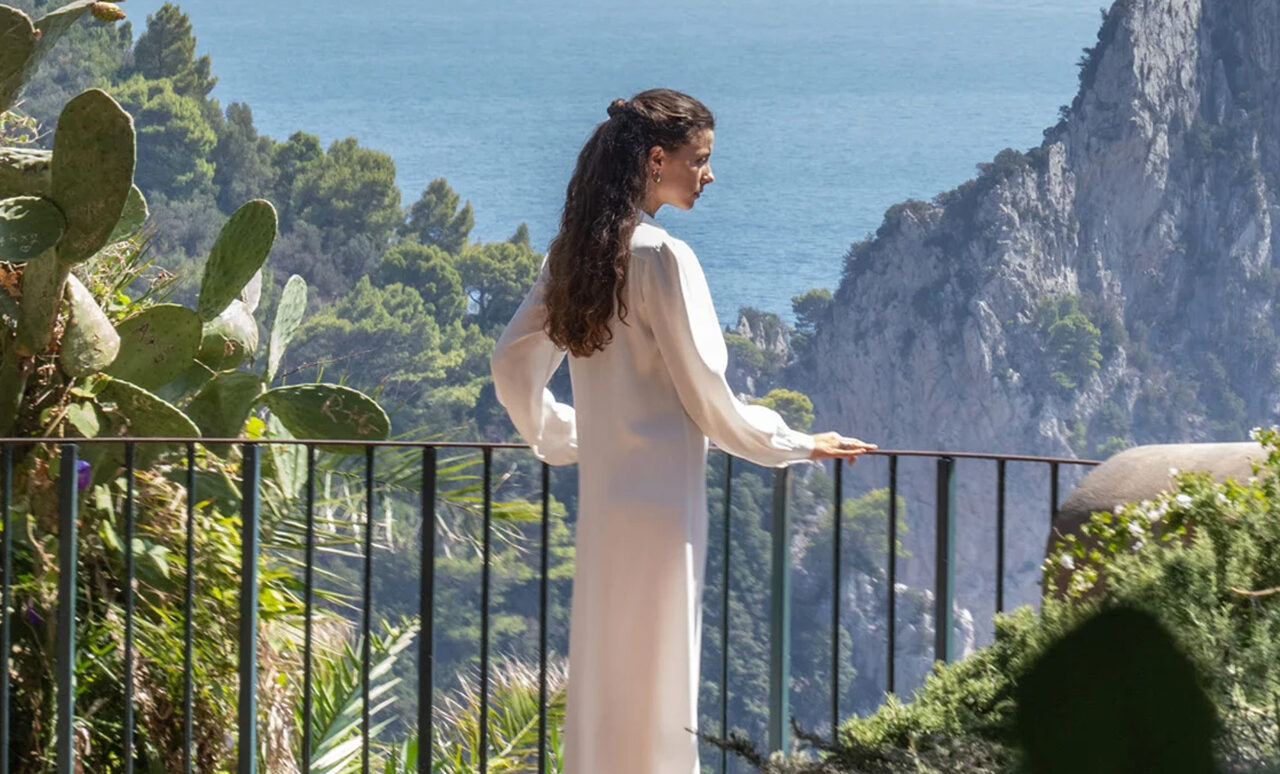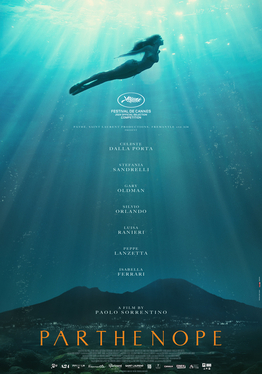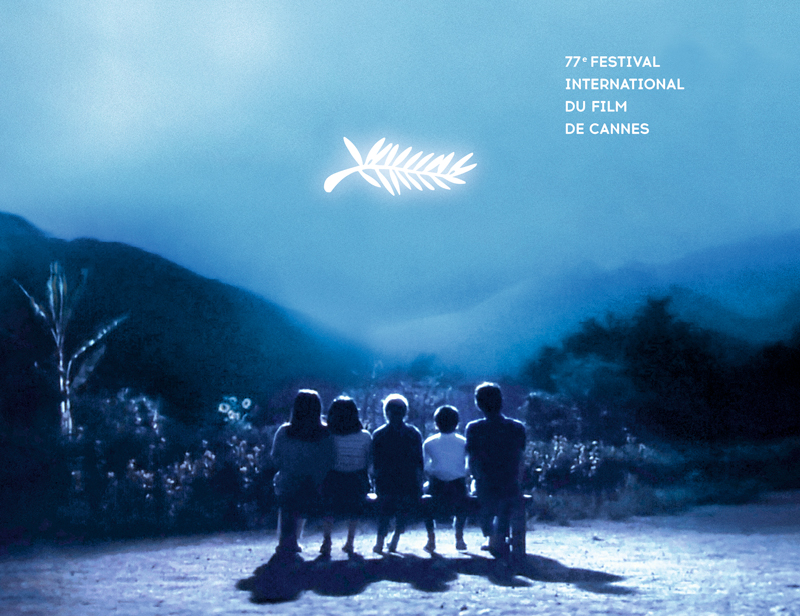Parthenope

Paolo Sorrentino’s films generally look beautiful, from the darkened corridors of illicit power of Il Divo to his previous love letter to his hometown of Naples, The Hand of God. Parthenope, another film inspired and set in and around Naples, is no exception. In fact, beauty, as well as the city, is its main subject matter.
The title character (named for the mythical siren said to have founded Naples), is a young woman born into a wealthy family with an opulent home by the sea – her mother actually gives birth to her in the Bay of Naples. Played by newcomer Celeste Dalla Porta, she is so obscenely beautiful as to distract everyone male she comes into contact with. These include her youthful playmate Sandrino (Dario Aita) and elder brother Raimondo (Daniele Rienzo).
Her great beauty may be a curse, however, as enigmatically she floats through an idyllic youthful summer until a family tragedy strikes, one that it is strongly hinted could be partially down to men’s reactions to her. Among those men are a playboy who tries to woo her in a helicopter, and Gary Oldman’s real-life alcoholic novelist John Cheever. He, however, has a healthier, less lustful interest in her as someone who has come to terms with losing his youth.
Parthenope’s opening act is something of a whirling fever dream and is gorgeous to watch, but baffling and mysterious. Parthenope, as Sorrentino has said, is not so much meant to be a real woman but a stand-in for the city of Naples itself. After the tragedy that ends her carefree times, the film pivots to follow her as she ages and learns more about the world – and is torn between her anthropology studies and an acting career she is told her beauty is made for.
There are some brilliant, small performances from those playing the oddball characters who drift in and out of Parthenope’s life, notably from Isabella Ferrari as an acting coach who insists on never showing her face, Luis Rainieri as scornful returning acting diva Greta Cool and Silvio Orlando as Parthenope’s wise anthropology professor.
Ultimately though, despite all this, and Daria D’Antonio aiding Sorrentino’s vision with some spectacular cinematography, Parthenope never really comes together into a compelling feature. You can see what Sorrentino is trying to do by making the character of Parthenope an allegory for Naples, youth and beauty. But it makes for a film that rather drifts through its runtime, looking great but failing to deliver on its good looks.
Mark Worgan
Parthenope does not have a UK release date yet.
Read more reviews from our Cannes Film Festival 2024 coverage here.
For further information about the event visit the Cannes Film Festival website here.
Watch a clip from Parthenope here:


























Facebook
Twitter
Instagram
YouTube
RSS